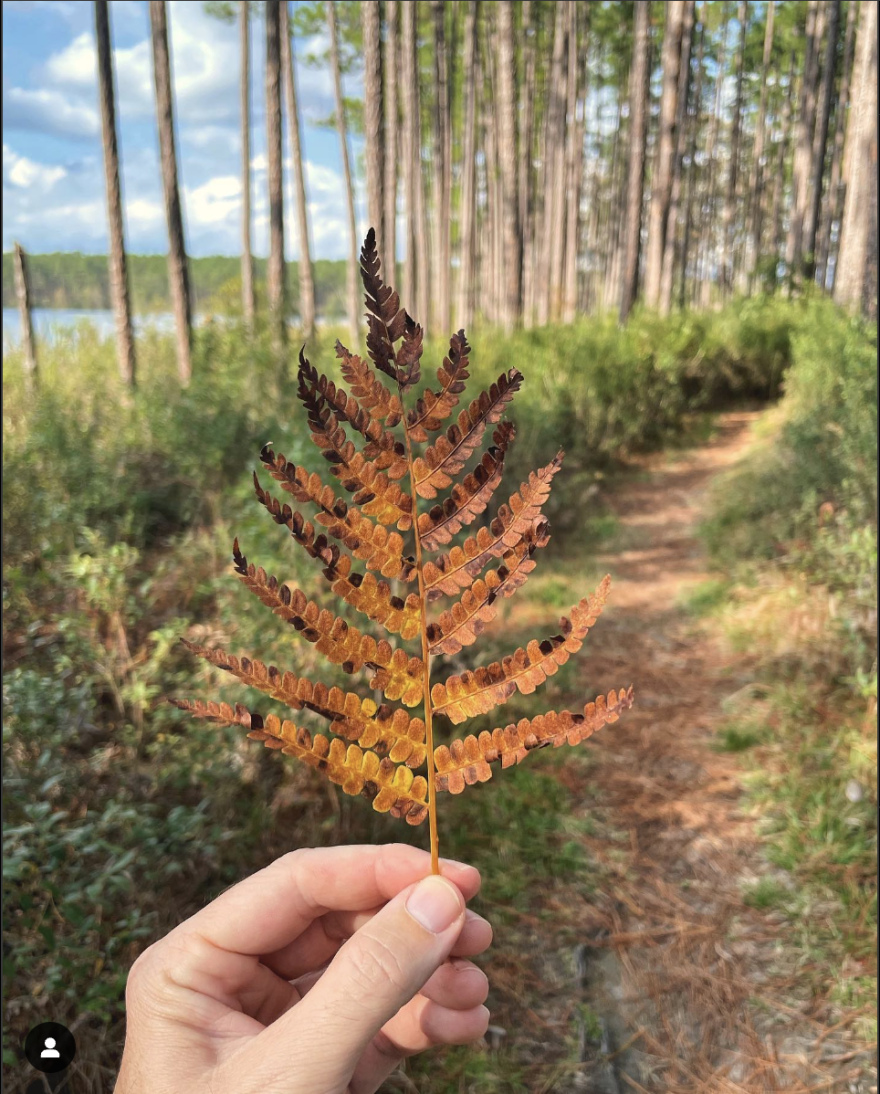Nationwide, the fall foliage season has had a bit of a slow start in the Southern states. But thanks to a push of cooler air by the weekend, it might be the prime time to head out and look for those hearty colors that fill the Florida landscape this time of year.
FLORIDA FALL FRONT! 🍁 Another shot of cooler and drier air is on the way for this weekend with lows in the 40s for the Panhandle, 50s and 60s in Southwest Florida. Enjoy the nice weather while we have it! @WINKNews pic.twitter.com/V1no5PpeJh
— Matt Devitt (@MattDevittWX) November 12, 2024
The Sunshine State certainly isn't famous for its fall foliage, since we traditionally tend to slide from summer directly into winter with a passing nod at autumn.
A beautiful Florida fall... 🍂🍁 #fgcu #fall pic.twitter.com/FkSaZN0pu0
— Florida Gulf Coast University (@fgcu) November 6, 2024
But the leaves of Florida maple, sweetgum, crape myrtles, blackgums, correl and cypress all change colors, with general peak times in mid- to late November. The most prolific fall colors are going to be in the Panhandle and North Florida, but there are some scattered spots south as well.
Who said fall never comes to Southwest Florida?
— Naples Botanical Garden (@NaplesBotanical) November 13, 2024
This Colville's glory tree didn't get the memo. 🍂
Want to learn more about some of our autumnal blooms? Check out our blog: https://t.co/AuhbE91p2s
Plant ID:
Colville's glory (Colvillea racemosa) pic.twitter.com/9bzY3GQqGA
Now don’t expect a kaleidoscope of fall colors you'd expect in Vermont. And according to the U.S. Forest Service, this summer’s heat wave is bringing a slower paced change of leaf than normal around the country as well.
@RyanResatka has mastered capturing fall foliage 💯🍁🍂 He captured these shots in Vermont and New Hampshire this fall using his Sony Alpha 1. Which one stands out to you the most? #SonyAlpha pic.twitter.com/9O1YLbeSpv
— Sony | Alpha (@SonyAlpha) November 10, 2024
For most of the United States, peak fall color arrives in October. This is when wide swaths of the Northeast, Midwest and West are aglow with bright fall foliage, and more than 80% of travelers make their fall foliage trips. Some less-populated regions peak in September (August in northern Alaska), while the southernmost states hold off until mid-November.

Now if you’re looking for spots that may only require a few hours by car, here is a list of some of Florida faves for fall foliage:
Torreya State Park ( one hour from Tallahassee) is the most famous place in Florida for seeing fall foliage. It’s on the southernmost edge of the Appalachian mountain range, and it has the altitude necessary to see changes in its flora. Southern sugar maple, sweetgum and sourwood trees start to turn in late October. The park is named for an extremely rare species of Torreya tree that grows only on the bluffs along the Apalachicola River and is known for high plateaus, steep bluffs and deep ravines as well as hardwood forests of southern sugar maple, sweetgum and sourwood trees bursting with autumnal colors.

Falling Waters is best known for its falling waters (hence the name). Trails lead to a boardwalk overlooking a 74-foot waterfall, the highest in Florida, and there are hikes over rolling hills and a 100-foot-deep sinkhole with a cave at the bottom. But there are also brightly-colored leaves this time of the year.

Edward Ball Wakulla Springs State Park in Wakulla Springs south of Tallahassee is full of cypress swamps and historic sites and home to one of the world's largest and deepest freshwater springs, featured in the 1954 "Creature of the Black Lagoon" and the 1941 "Tarzan’s Secret Treasure." The park offers sights of red sugar maples, the tan leaves of beech trees and beautyberry bushes that turn purple in cooler weather.

Ormond Scenic Loop and Trail in Ormond Beach which is north of Daytona Beach, offers 30 miles of old Florida beauty in a double loop that goes through four state parks and six local parks for a breathtaking view of red maples, pignut hickory trees and oaks along creeks, marshes, beaches and the Halifax River. It is a popular trial for locals and cycle enthusiasts.

Flying Eagle Preserve is an area of nearly 11,000 acres in Inverness near Orlando that has 22 miles of multi-use trails, lakes, fishing, marshes and more. Hardwoods and cypress trees start to change in late October. This area is a site on the Great Florida Birding and Wildlife Trail.
And if you live in south Florida, you can get a nod from Mother Nature as well. While the leaves won’t turn vibrant orange and reds, the fall season is ushered in with the arrival of the graceful and fluffy purples of muhly grass.
The colors of fall don't arrive as vibrant orange and red leaves in South Florida. Instead, the arrival of fall is heralded by the graceful and fluffy purples of muhly grass.
— Everglades National Park (@EvergladesNPS) November 7, 2024
To learn more visit: https://t.co/rEgxxgoYrG.
NPS Photo by L.Velarde pic.twitter.com/NGgMAfHruj
Muhly grass is most obvious in the fall, when delicate purple flowers blanket the foliage. The Everglades were dubbed the River of Grass by author and environmentalist Marjory Stoneman Douglas in 1947 to describe the slow movement of shallow sheetflow through sawgrass marshes across south Florida.



